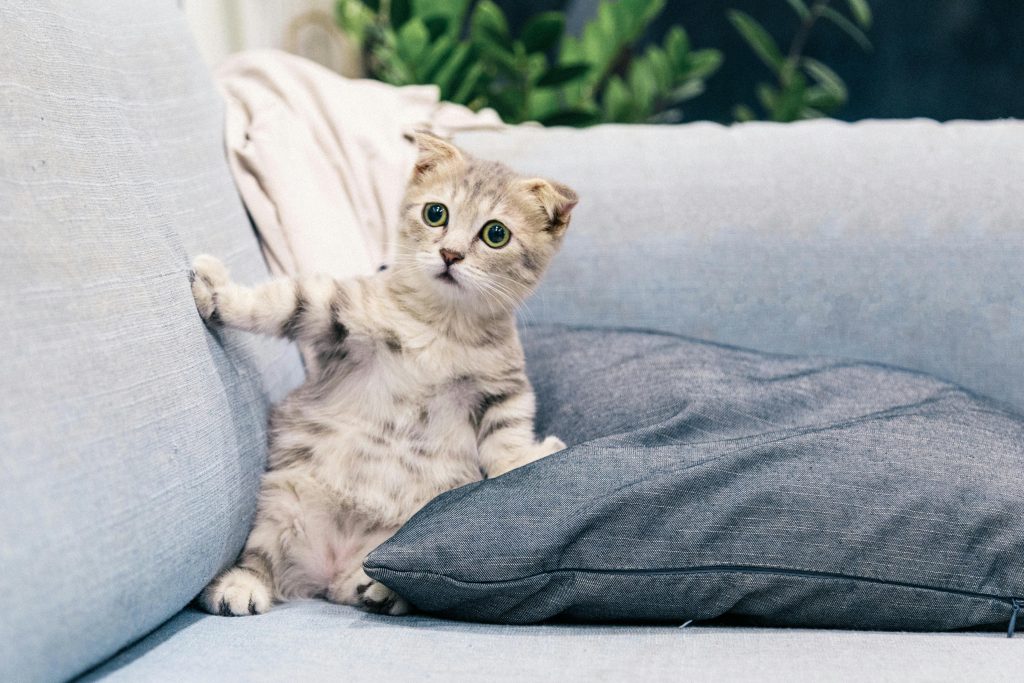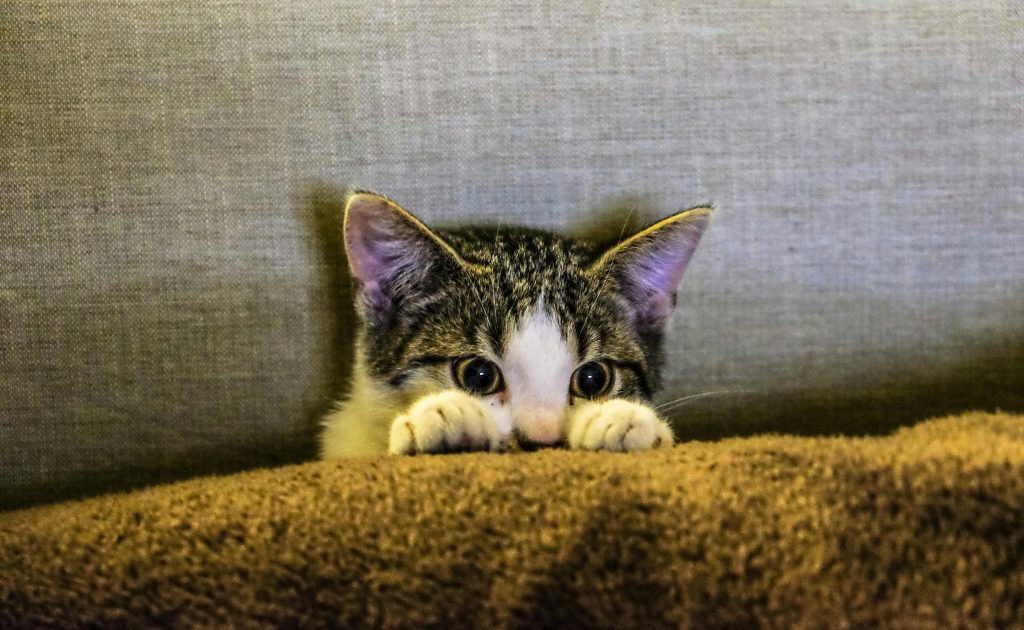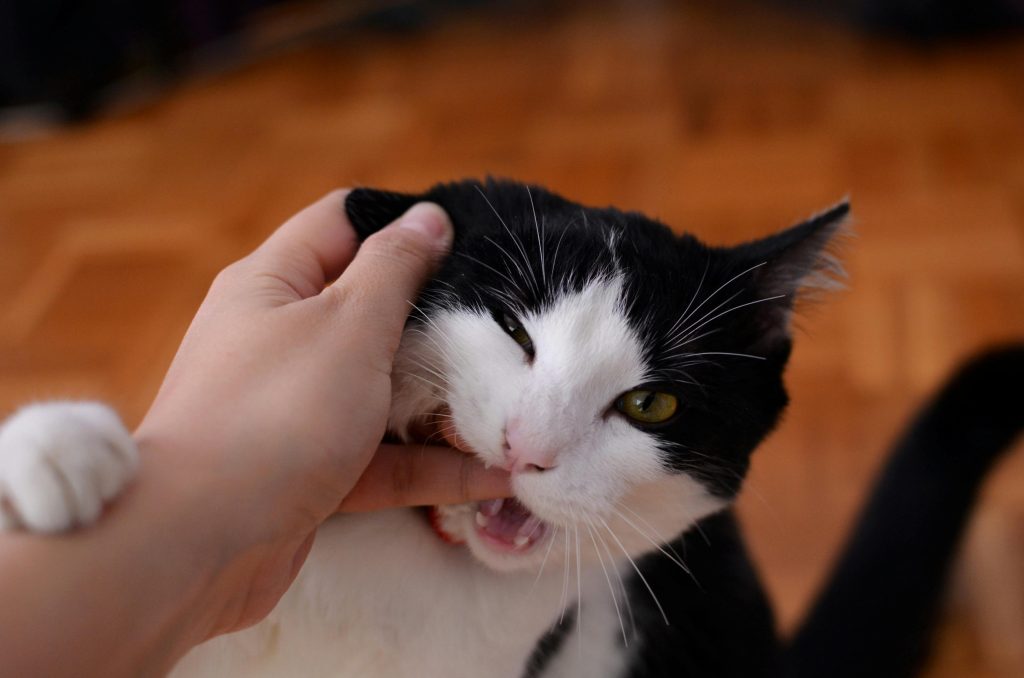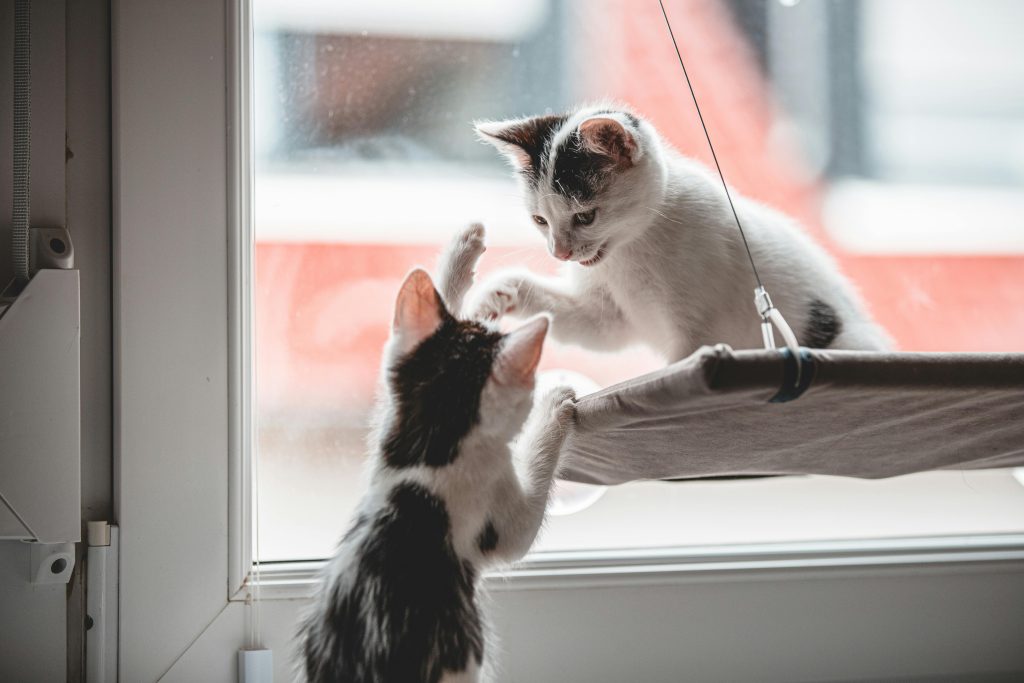Table of Contents
Have you ever walked into a room only to catch your cat fixated on an object, poised to send it crashing to the ground in a moment of sheer chaos?
If so, you’re certainly not alone; this quirky feline behavior baffles countless pet owners, provoking both laughter and disbelief, while also revealing a fascinating blend of instinct, curiosity, and playful energy behind their antics.
1. The Intriguing Instincts of Cats

Cats are truly intriguing beings, and much of their behavior is rooted in instincts passed down from their wild ancestors, showcasing a fascinating blend of exploration and playfulness.
When your furry friend knocks something over, it’s not merely an act of mischief; rather, it reflects their inherent desire to investigate and interact with their environment, turning everyday objects into toys in their quest for understanding.
- Exploratory Nature: Cats are natural explorers. They have a strong instinct to investigate and manipulate their environment. By knocking things over, they’re not just being playful—they’re actively learning about their world.
- Hunting Behavior: In the wild, cats often swat at prey to see if it’s alive. This instinct translates into our homes, where your unsuspecting coffee mug or houseplant becomes a target. By batting objects off surfaces, your cat mimics the hunting strategies it would use to catch smaller animals.
2. The Power of Playtime
Let’s face it: cats are undeniably playful creatures that thrive on engaging activities, and they require both mental and physical stimulation to keep their curious minds and agile bodies entertained.
Therefore, when they take it upon themselves to knock things over, it often serves as an integral part of their play routine, allowing them to explore their surroundings and engage in a bit of fun and mischief all at once.
- Boredom Busters: If your furry friend is feeling bored, they might resort to knocking things over as a form of entertainment. Providing engaging toys or interactive playtime can redirect this energy. Try using feather wands, laser pointers, or even a good old-fashioned cardboard box to keep them entertained!
- Solo Sports: Your cat doesn’t need a playmate to have fun. Many cats enjoy solo sports, like sending a ball of yarn tumbling across the floor or batting around random household items. If it moves, it’s fair game!
3. Seeking Attention

Often, when your cat playfully knocks something over, it’s a clever way of seeking your attention, as they quickly learn that their antics elicit reactions from you—whether it’s laughter, a firm “no,” or even a mad dash to clean up the mess.
This behavior reinforces their desire to continue swatting at objects, as they thrive on the interaction it creates between you and them.
- Demanding Interaction: Cats are smart. They quickly learn what gets them noticed. If they see you jumping to catch that falling glass or laughing at their antics, they might think, “Hey, this is how I get their attention!”
- Feeling Lonely: Cats also have feelings, and sometimes, they might knock things over simply because they want a little companionship. If you’ve been busy or distracted, try spending a few minutes playing with your kitty. You might just see a decrease in the shenanigans!
4. Curiosity and Experimentation
Cats, being inherently curious creatures, often engage in playful exploration by testing the laws of physics and, quite frankly, your patience; when they deliberately push objects off tables or counters, they’re not merely being mischievous but conducting their little experiments to understand their environment better.
This behavior reflects their instinct to interact with and manipulate their surroundings, revealing the fascinating blend of curiosity and playfulness that defines our feline friends.
- Cause and Effect: Knocking things over teaches cats about cause and effect. They quickly realize that if they push something, it falls. This simple yet engaging concept keeps their little brains sharp and entertained.
- Sensory Stimulation: Cats experience the world primarily through their senses. The sound of an object clattering to the floor or the sensation of something moving under their paws can be exhilarating. Each fall presents a new auditory experience!
5. The Feline Sense of Humor

Cats, believe it or not, possess personalities that can be incredibly amusing and downright funny, often engaging in antics that seem delightfully intentional and leave us chuckling at their whimsical behavior.
It’s as if they have an innate sense of humor, performing these little acts for our entertainment and making us wonder if they’re fully aware of the joy they bring to our lives.
- Understanding Humor: Many cat owners can attest to their pet’s unique personalities. Some cats enjoy performing antics that bring smiles to their owners’ faces. Knocking something over could be their way of showcasing their “comedic talents.”
- Social Dynamics: Just like people, cats can have a sense of timing when it comes to their antics. They may choose to knock something over right when you’re on a work call or during an important moment—perhaps they find it amusing to watch your reactions!
6. Practical Tips for Pet Owners
So, how can you manage this amusing yet sometimes frustrating behavior? Here are some practical tips to keep the chaos to a minimum:
- Create a Cat-Friendly Space: Ensure your home has plenty of designated areas for your cat to play and explore. Cat trees, scratching posts, and safe toys can help redirect their energy.
- Reduce Temptation: If your cat has a habit of knocking over specific items, consider relocating those objects to higher surfaces or using secure storage solutions. Out of sight, out of mind!
- Interactive Playtime: Set aside regular play sessions with your cat. This can include interactive toys, laser pointers, or even tossing crumpled paper balls. Keeping your cat engaged can significantly reduce their urge to knock things over.
- Reward Positive Behavior: When your cat engages with their toys instead of your favorite vase, reward them with treats or affection. Positive reinforcement helps them associate good behavior with rewards.
7. Embracing the Quirkiness

Ultimately, it’s essential to acknowledge that knocking things over is simply part of a cat’s inherent behavior, and while it can occasionally be amusing or even a bit frustrating, it contributes to their unique and quirky charm.
Each clatter or crash serves as a delightful reminder of their playful nature and the instinctive traits that define them.
A Cat’s Life: Endless Entertainment
Next time your cat transforms your kitchen into a mini demolition zone, take a moment to appreciate the delightful blend of instincts, curiosity, and humor that drives this behavior, reminding you that life with a feline companion is never boring and always sprinkled with surprises, laughter, and the occasional broken item.
Ultimately, with all the joy they bring into your life, isn’t a little chaos worth it? Embrace the playful mess, knowing your cat is simply being its wonderfully curious and spirited self.

Hi, I’m Zoey, a devoted mom to two charming Siamese cats. My passion lies in assisting fellow pet owners in providing optimal care for their cats. On CatsEuphoria, I share practical tips and relatable stories, inviting you to join me in appreciating the authentic bond between humans and our beloved feline companions.




